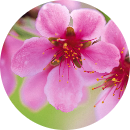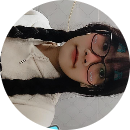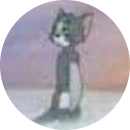Các câu hỏi tương tự
CỨU EM VỚI Ạ!!!1.Find the mistake and mark A, B, C or D to indicate the correct answer to each of the following sentences *a.weekendsb.hangingc.adored.do2.Find the mistake and mark A, B, C or D to indicate the correct answer to each of the following sentences *a.pointing atb.whenc.are communicatingd.shouldnt3. You should _______ information about a custom or tradition. a.findb.foundc.findsd.finding4. Saint Giong was unable to talk, smile, or walk ____________he was three years old. *a.therefor...
Đọc tiếp
CỨU EM VỚI Ạ!!!
1.Find the mistake and mark A, B, C or D to indicate the correct answer to each of the following sentences *
a.weekends
b.hanging
c.adore
d.do
2.
Find the mistake and mark A, B, C or D to indicate the correct answer to each of the following sentences *
a.pointing at
b.when
c.are communicating
d.shouldn't
3. You should _______ information about a custom or tradition.
a.find
b.found
c.finds
d.finding
4. Saint Giong was unable to talk, smile, or walk ____________he was three years old. *
a.therefore
b.even though
c.nevertheless
d.if
5. While I __________the performance, I met one of my old friends. *
a.am watching
b.was watching
c.watch
d.watched
II. Read the passage and answer the questions. Circle A, B, or C.The Moon is approximately 384,400 kilometers from the Earth. Its diameter is 3,479 kilometers, about 1/4 the diameter of Earth. The average temperature on the surface of the Moon during the day is 107°C, hot enough to boil water on Earth. During the night, the average temperature drops to −153°C.Because of its smaller size and mass, the gravity of the Moon is about 1/6 the gravity on the Earth. That means that a person who weighs 1...
Đọc tiếp
II. Read the passage and answer the questions. Circle A, B, or C.
The Moon is approximately 384,400 kilometers from the Earth. Its diameter is 3,479 kilometers, about 1/4 the diameter of Earth. The average temperature on the surface of the Moon during the day is 107°C, hot enough to boil water on Earth. During the night, the average temperature drops to −153°C.
Because of its smaller size and mass, the gravity of the Moon is about 1/6 the gravity on the Earth. That means that a person who weighs 180 pounds on Earth would only weigh 30 pounds if measured on the Moon. The force of gravity from the Moon affects Earth. Its gravity reaches Earth and pulls the oceans toward the Moon, causing the tides. The gravity from the Sun also affects the tides. The highest tides will always occur when the Moon and Sun are aligned. That is when there is a New Moon or a Full Moon.
1. What is the first paragraph mainly about?
A. A comparison between the Moon and Earth B. Physical characteristics of the Moon
C. The effect of the Moon on Earth
2. The word “its” in paragraph 2 refers to which of the following?
A. the Moon’s B. Earth’s C. gravity’s
3. According to the passage, which of the following is true?
A. A person would lose 5/6 of their weight if they were on the Moon.
B. A person would weigh much less on the Moon than on Earth.
C. The Earth weighs six times as much as the Moon.
4. What can we learn about the tides?
A. They happen twice a month at New Moon and Full Moon.
B. The Sun causes higher tides on Earth than the Moon does.
C. They are caused by both the Sun and the Moon.
5. The word “aligned” is closest in meaning to which of the following?
A. combined together B. arranged in a line C. affected by the other
The United States is a large country. It is the third largest in the whole world! It is located in a continent called North America. Parts of the United States touch three different oceans. The United States has tall mountains, wide plains, deserts, hills, rivers, lakes, volcanoes and even rainforests! People from all over the world have come to live in the United States. There are 50 states in the United States. The newest states, Alaska and Hawaii, are not connected to the other states. Alaska...
Đọc tiếp
The United States is a large country. It is the third largest in the whole world! It is located in a continent called North America. Parts of the United States touch three different oceans. The United States has tall mountains, wide plains, deserts, hills, rivers, lakes, volcanoes and even rainforests! People from all over the world have come to live in the United States. There are 50 states in the United States. The newest states, Alaska and Hawaii, are not connected to the other states. Alaska is the largest state and Hawaii is a chain of islands in the Pacific Ocean.
22.The United States is the _________ country in the world.
A. second largest B.largest C.smallest D.third largest
23.Alaska is ___________ and Hawaii is __________.
A. a chain of islands/ the largest state B. the largest state/ a chain of islands
C.a chain of islands/ the largest state D.not connected to the other states/ the largest state
24.The United States does not have ____________.
A.50 states B. volcanoes C. mountains D.continents
25.Parts of the United States touch _________ different oceans.
A.1 B.2 C.4 D.3
26.What continent is the United States in?
A.North America B.Australia C. Africa D.Europe
Choose the underlined part A, B, C or D that needs correcting1. It is estimated that a scientific principle has a life expectancy of approximately a decade before it drastically revised or replaced by newer information.2. The peel were actually 52 meters long.3. Why did all the customers at the Red Lion have to pay of their beer that week?4. Found in the 12th century, Oxford University ranks among the world’s oldest universities.5. The heavy rain made it possible for us to have our picnic.
Đọc tiếp
Choose the underlined part A, B, C or D that needs correcting1. It is estimated that a scientific principle has a life expectancy of approximately a decade before it drastically revised or replaced by newer information.2. The peel were actually 52 meters long.3. Why did all the customers at the Red Lion have to pay of their beer that week?4. Found in the 12th century, Oxford University ranks among the world’s oldest universities.5. The heavy rain made it possible for us to have our picnic.
IV. Read the passage and answer the questions. (2 points)THE GREAT WALL OF CHINAIn China, there is a wall that is 1,500 miles long. It is called the Great Wall of China. It winds uphill and down, through valleys and mountains. It was made by hand. The Great Wall of China was built from 246 - 209 BC. The people of China made it to keep out their enemies. There are watch towers all along the way. The Wall is made of brick and earth. It is high and wide on top. People can walk alongthe top as if it...
Đọc tiếp
IV. Read the passage and answer the questions. (2 points)
THE GREAT WALL OF CHINA
In China, there is a wall that is 1,500 miles long. It is called the Great Wall of China. It winds uphill and down, through valleys and mountains. It was made by hand. The Great Wall of China was built from 246 - 209 BC. The people of China made it to keep out their enemies. There are watch towers all along the way. The Wall is made of brick and earth. It is high and wide on top. People can walk along
the top as if it were a road. No other defense line has ever been made as long as the Great Wall of China.
1. Where is the Great Wall?
……………………………………………………………………
2. When was it built?
……………………………………………………………………
3. What is it made of?
……………………………………………………………………
4. What was it built for?
……………………………………………………………………
In the Spring of 1934, storms swept across the Great Plains, but they were not rainstorms. They were the result of sun drought and a terrible wind that blew millions of tons of top soil from 300.000 square miles in Kansas, Texas, Oklahoma, Colorado and New Mexico. This was the Dust Bowl. It buried fences, fields and home. It choked cattle and sickened the people who stayed. Three hundred and fifty thousand settlers fled many becoming part of a slow, sad caravan along Route 66 to California. But...
Đọc tiếp
In the Spring of 1934, storms swept across the Great Plains, but they were not rainstorms. They were the result of sun drought and a terrible wind that blew millions of tons of top soil from 300.000 square miles in Kansas, Texas, Oklahoma, Colorado and New Mexico. This was the Dust Bowl. It buried fences, fields and home. It choked cattle and sickened the people who stayed. Three hundred and fifty thousand settlers fled many becoming part of a slow, sad caravan along Route 66 to California.
But wind and drought were not the only factors that combined to create the Dust Bowl. Only fifty years earlier, a carpet of buffalo grass had covered the Great Plains, protecting the soil and retaining the moisture that had been used as ranch land. The increased demand for wheat during World War I encouraged farmers to plow and plant even wider areas. Forty percent of the land that they plowed up had never been exposed to rain, wind or sun before. When the drought and wind came, the land had been prepared for disaster.
46. With which of the following topics is the passage primarily concerned?
A. The Dust Bowl B. The Great Plains C. Homesteading D. World War I
47. Where did many of the homesteaders go when they abandoned their farms?
A. To Kansas B. To New Mexico C. To Texas D. To California
48. The word “caravan” in paragraph 1 is closet in meaning to which of the following words?
A. line B. group C. family D. town
49. What does the author mean by the statement “By the turn of the century, farmers had settled, homesteading in regions that had been used as ranch land”?
A. Homesteaders began to settle land | B. Ranches began to replaced farms |
C. Homesteaders were used for open range | D. No homesteaders were left |
50. The author mentions all of the following as having contributed to the disaster EXCEPT.
A. wind B. drought C. homesteading D. rain
II. Choose the word or phrase - a, b, c, or d - that best corn,: sentence or substitutes for the underlined word or phrase.6. Van Mieu was representative of Confucian ways of thought and behaviors. a. traditional b. typical c. memorial d. cultural7. The stone stelae were ................. with the names of the doctor laureates. a. written b. cut c. designed d. engraved.8. The collection has been sold to the British Museum where it will be ...........
Đọc tiếp
II. Choose the word or phrase - a, b, c, or d - that best corn,: sentence or substitutes for the underlined word or phrase.
6. Van Mieu was representative of Confucian ways of thought and behaviors.
a. traditional b. typical c. memorial d. cultural
7. The stone stelae were ................. with the names of the doctor laureates.
a. written b. cut c. designed d. engraved.
8. The collection has been sold to the British Museum where it will be ...............for the nation.
a. conserved b. existed c. preserved d. impressed.
9. She felt intense fear mingled with excitement.
a. contacted b. added c. contained d. mixes
10. Hoi An is a famous tourist attraction with many ...............sites.
a. royal b. natural c. cultural d. attractive
11. These plants ..................in a damp climate.
a. root b. found c. exist d. flourish
12. New York is.............by its hundreds of tall offices and aspartame.
a. symbolized b. characterized c. impressed d. famous
13. Washington State is famous ................. its apples.
a. with b. to c. on d. for
14. About 90 percent of all the people ................New Jersey live
a. in/ in b. on/ in c. in/ at d. in/ or.
15. The match has been................ from Wednesday night to Friday cause of the bad weather.
a. cancelled b. competed c. postponed d. watched
E2. Are the underlined parts right or wrong? Correct the wrong1. Ive lost my key. I cant find it anywhere. - Right2. Have you eaten a lot of sweets when you were a child? - Did you eat3. Ive bought a new car. You must come and see it. -4. Ive bought a new car last week. -5. When have you been yesterday evening? -6. Lucky has left school in 1999. -7. Im looking for Mike. Have you seen him? -8. Have you been to Paris? Yes, many times -9. Im very hungry. I havent eaten much today. -10. When has t...
Đọc tiếp
E2. Are the underlined parts right or wrong? Correct the wrong
1. I've lost my key. I can't find it anywhere. -> Right
2. Have you eaten a lot of sweets when you were a child? -> Did you eat
3. I've bought a new car. You must come and see it. ->
4. I've bought a new car last week. ->
5. When have you been yesterday evening? ->
6. Lucky has left school in 1999. ->
7. I'm looking for Mike. Have you seen him? ->
8. Have you been to Paris? "Yes, many times" ->
9. I'm very hungry. I haven't eaten much today. ->
10. When has this book been published. ->
Choose the word or phrase that is OPPOSITE in meaning to the underlined part in each of the following sentences.19. He is the offspring of a chemist and a nurse. His intelligence is inherited from them.A. partner B. friend C. ancestor D. neighbor20. Vy broke with the family tradition and chose to be a singer instead of being a teacher.A. united B. followed C. connected ...
Đọc tiếp
Choose the word or phrase that is OPPOSITE in meaning to the underlined part in each of the following sentences.
19. He is the offspring of a chemist and a nurse. His intelligence is inherited from them.
A. partner B. friend C. ancestor D. neighbor
20. Vy broke with the family tradition and chose to be a singer instead of being a teacher.
A. united B. followed C. connected D. joined















